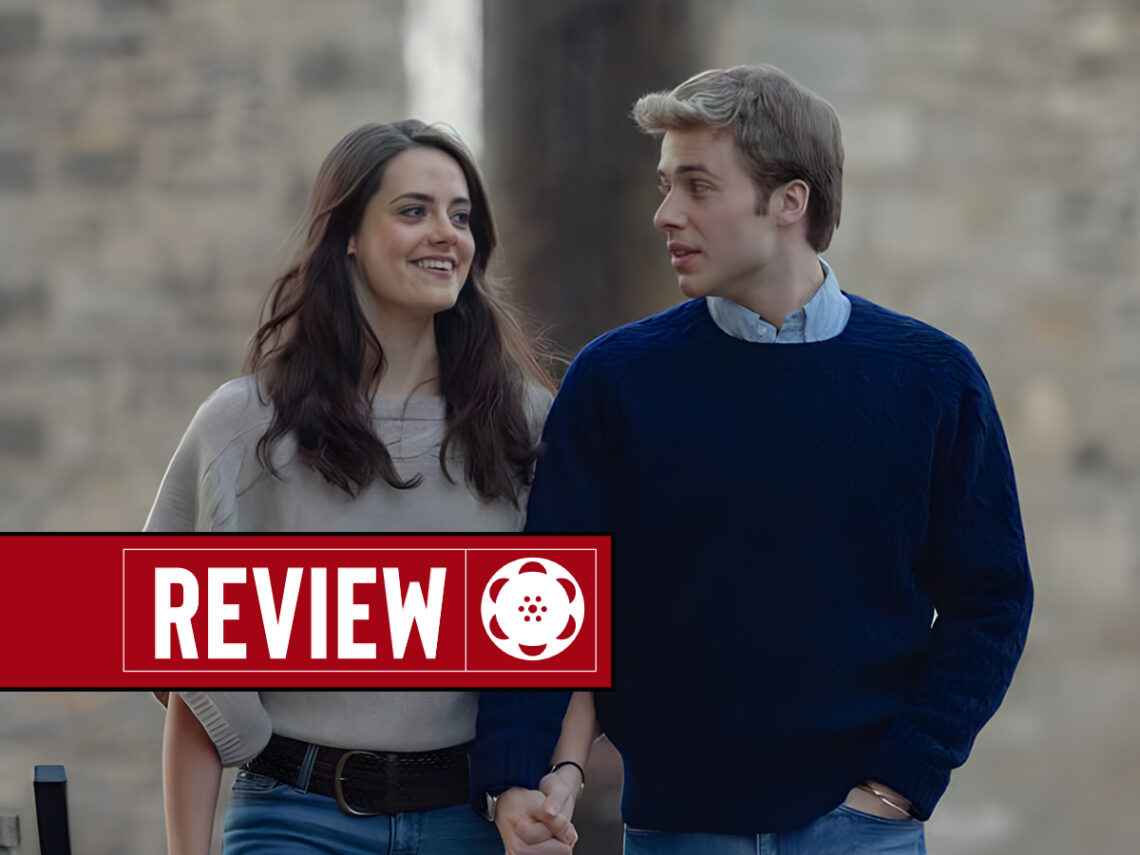The curtain has finally fallen on Queen Elizabeth II’s reign as well as The Crown. While the first part of season six, consisting of four episodes, dedicated itself to the last few days of Diana’s life, the last six episodes, in part two, aim to wrap up the storylines for the other major characters as neatly as possible. In doing so, the magnificently crafted episodes, dripping with diamonds and delectably lavish interiors, end up feeling both rushed and sluggish, aware yet ultimately mellow.
The story picks up in 1998, a short few months after Diana’s fatal crash in August of 1997. Her legacy now lives on in William in the minds of the public. Ed McVey does the young prince justice as he captures the psyche of a teenager who suddenly finds himself in the limelight. All the love and adoration people had for Diana; now they are ready to pour into William, seemingly a far more reluctant recipient of it all because, much like royal successions, this crown also passes onto him upon the wretched loss of a parent.
The Crown does a very humane job of portraying William’s grief, a complicated ordeal that is intermingled with sorrow, anger, and exhaustion for anybody, let alone someone born within a structure so rigid and contentious. The fifth episode, ‘Willsmania’, is dedicated solely to Will coming to terms with shouldering the reality of being the heir apparent to the British crown.
The next episode establishes a Hallmark-esque meet-cute between Will and Kate Middleton and also retcons one between the late Diana and Catherine on the eves of Christmas. It is underlined: fate is at play here, for theirs is a star-crossed love. But is it really?
The Crown does something very interesting with how it portrays privilege and agency. Kate is given a modicum of power over Will, presented to her by her charm and popularity. In one curious scene, she gets to put the prattish Will in his place after his outburst at a royal fan who interrupts their conversation. Their entire storyline represents how The Crown treats the royal family—as puppets in a scheme grander than anyone born outside of it can ever fathom. The royals are always doing their best to rise to the occasion bestowed upon them by the divine. However, they are constantly surrounded by three kinds of people—ones who totally and ardently adore them, ones who are always critical of them, and the ones who would do anything to become them.
Kate’s mother, Carole Middleton, uses her wealth and influence to orchestrate a royal romance for the ages, much like Mohamed Al-Fayed did for Dodi and Diana. But while Carole is equated to the harried Mrs Bennet (from Pride & Prejudice) who simply wanted the best for her daughters, Al-Fayed is characterised as a dubious arriviste who resigned to maligning the royal family when his plans went awry. His accusations of foul play and racism are cast aside as outrageous manifestations of grief and bitterness.
On the other hand, the royals navigate their circumstances with grace, constantly transcending the public’s misconceptions. Contrary to accusations of bigotry, xenophobia, and opulence, they’re etched as the diligent custodians of tradition, not lavish hoarders. Rejecting the stigma of epigenetic hegemony, they play their roles as preservers of antiquity, guarding the legacy that extends beyond their wealth and privilege. Beneath all that regalia, they are just like us plebs, facing the same human dilemmas of love, mortality, and identity.
The remaining episodes of The Crown touch upon a lot more—from the Queen Mother’s death to Princess Margaret’s and even good ol’ Porchey’s passing, from the rise and downfall of Tony Blair in the House of Public Opinion to Harry grappling with being the black sheep of his generation. The infamous Harry Nazi costume incident is dismissed as youthful folly. Prince Phillip emphasises the blame rests mainly on those who sold the photo to the press. Camilla is portrayed as the most patient saint, whispering good parenting advice in Charles’ ears and being his strength and support, which Diana could never become.
Prince Andrew’s insignificant depiction of the clueless uncle is the biggest gloss-over. He is there without any commentary on his sexual assault allegations. He is just a glitchy narrative tool used to draw in the point about the Queen’s isolation after the passing of her closest confidants.
The sixth episode, ‘Ruritania,’ is perhaps the closest in essence to the first couple of seasons, where we saw the royals engaging with the political climate of the world, not just the social. This episode also has some of the most excellent dialogue that The Crown concocted so masterfully at its peak.
The eighth and ninth episodes are full of teary goodbyes. Lesley Manville delivers a stellar last hurrah as Princess Margaret. A scintillating moment between Olivia Colman and Imelda Staunton becomes the most exciting moment of the final episode. Claire Foy, who arrives a couple of scenes later, gets the short end of the stick for no fault of her own. Colman has that rather ungodly ability to upstage anyone and everyone, even when she is cleaning horse poo.
Ultimately, we have a conclusion that is all about sentimentality with little novelty or biting commentary. It will still endear to the barmy army who loved the show for what it has always been—prodigious, glamorous, grand storytelling, and that revolving coterie of some of the most sensational performers of our times!
